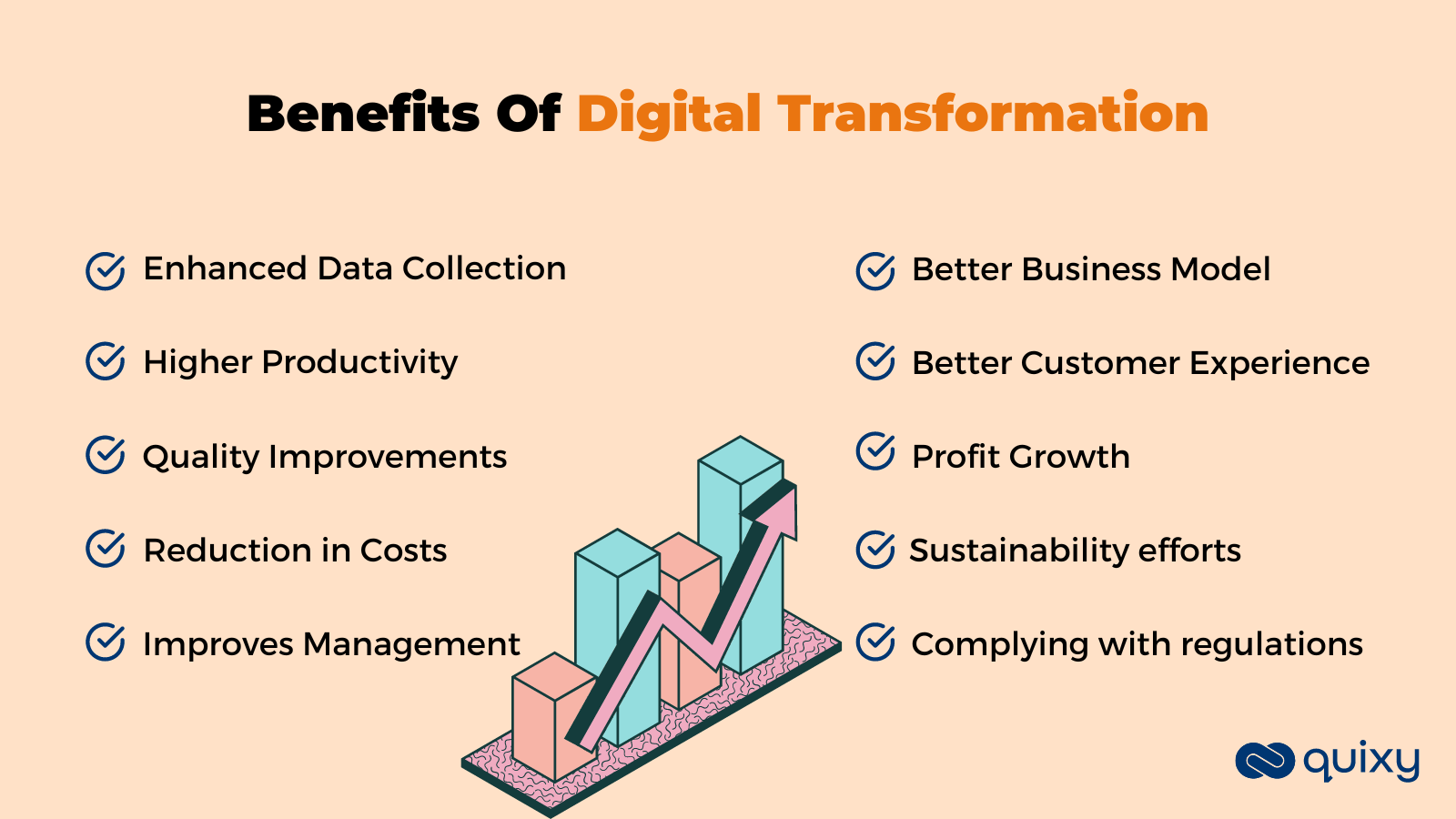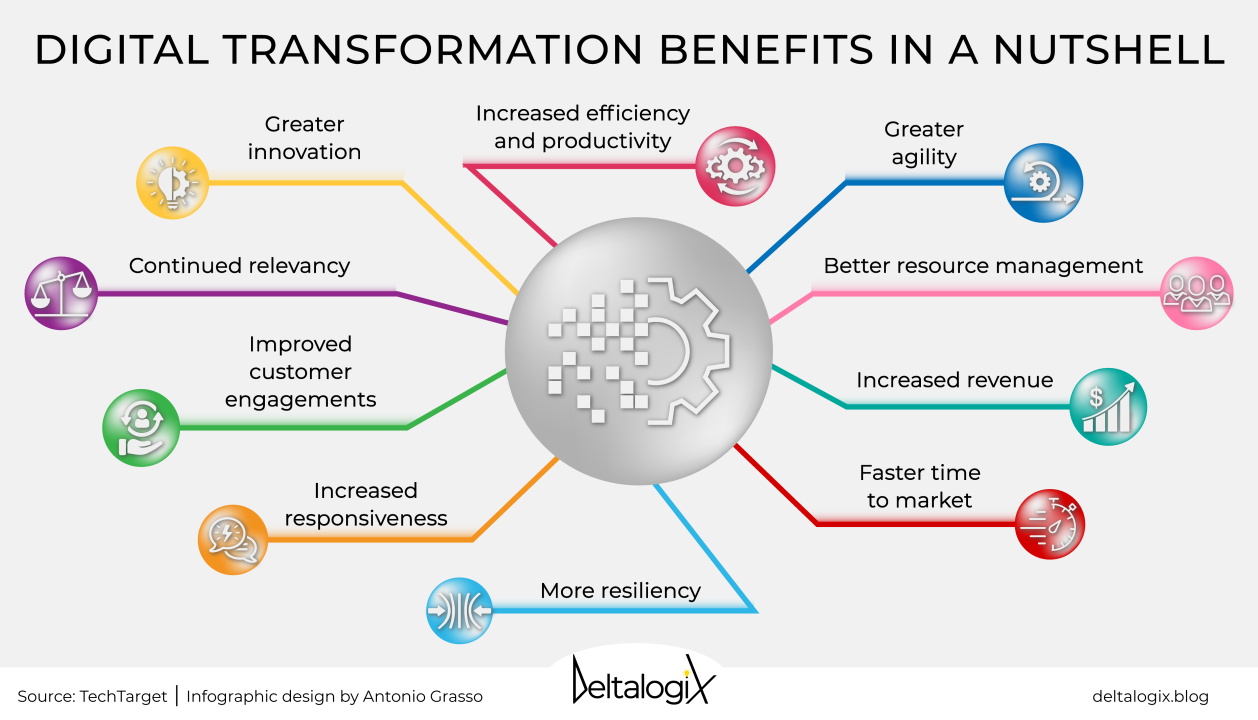Unlocking the Benefits of Digital Transformation: A Comprehensive Guide
In today’s fast-paced business landscape, digital transformation has become a critical strategy for companies looking to stay competitive and relevant. Businesses that embrace digital transformation stand to gain a plethora of advantages, from enhanced customer experiences to streamlined operational efficiency. By leveraging the power of digital technologies, organizations can unlock new revenue streams and drive sustainable growth. Let’s delve into the world of digital transformation and explore how this strategic approach can revolutionize your business.

The Evolution of Technology: Catalyst for Digital Transformation
With the rapid evolution of technology over the past decade, industries have witnessed transformative changes through digital transformation. This phenomenon encapsulates the strategic adoption of digital tools and technologies to revolutionize business operations and offerings. As businesses navigate the digital landscape, opportunities arise to innovate, enhance efficiency, and elevate customer experiences, all leading to the realization of Digital Transformation Benefits.

Embracing the Digital Revolution
Digital transformation revolutionizes businesses by integrating digital technologies across all facets, reshaping operational paradigms and customer interactions. It goes beyond technology adoption; it’s a strategic overhaul redefining business strategies for maximal efficiency and innovation. By infusing technology, businesses enhance customer satisfaction, streamline operations, and innovate business models, positioning themselves for growth and sustainability in a digitally-driven world. Digital transformation benefits are vast and pivotal for modern business success.

Maximizing Business Success with Digital Transformation Benefits
Embracing digital transformation opens doors to unparalleled benefits. Enhanced customer experience is achieved through personalized interactions and seamless omnichannel engagement, fostering customer satisfaction and loyalty. Additionally, operational efficiency skyrockets, cutting costs and boosting productivity, giving businesses a competitive edge in today’s dynamic market. With data-driven insights and real-time analytics, decision-making becomes more informed and agile, propelling strategic growth. Moreover, digital transformation paves the way for creating innovative revenue streams and exploring new business opportunities, driving sustained success.

Navigating the Challenges of Digital Transformation
Cybersecurity Threats and Data Security Concerns
One of the foremost challenges in digital transformation is safeguarding against cybersecurity threats and ensuring robust data security measures. With the increasing reliance on digital technologies, businesses face the constant battle of protecting sensitive information from cyber attacks, emphasizing the critical need for secure systems to mitigate risks effectively.
Resistance to Change and Lack of Digital Literacy Among Employees
A significant obstacle lies in overcoming resistance to change and addressing the varying levels of digital literacy within the workforce. Encouraging a shift in mindset towards embracing technological advancements and providing adequate training can help bridge the gap and empower employees to adapt to new digital tools and processes seamlessly.
Integration Challenges with Legacy Systems and Infrastructure
Integrating new digital solutions with existing legacy systems and infrastructure poses a complex challenge for organizations undergoing digital transformation. Ensuring compatibility, data migration, and seamless connectivity between old and new systems require meticulous planning and expertise to avoid disruptions and maximize operational efficiency.
Cost and Resource Implications
Digital transformation initiatives often come with substantial cost implications and resource requirements, making it vital for businesses to carefully assess and allocate financial resources effectively. Balancing the investment in new technologies with the anticipated returns while managing resources efficiently is crucial to drive successful digital transformation outcomes without jeopardizing financial stability.

Harnessing Key Technologies for Digital Transformation
Embracing Cloud Computing for Scalability, Flexibility, and Cost Optimization
Digital Transformation Benefits are abundant when incorporating cloud computing. Leveraging cloud services enables businesses to scale resources according to demand, ensuring flexibility and agility in operations. Moreover, migrating to the cloud minimizes infrastructure costs, increasing cost-efficiency and allowing for easier and faster deployment of new technologies.
Exploiting Artificial Intelligence and Machine Learning for Enhanced Data Analysis
Integrating Artificial Intelligence and Machine Learning technologies empowers organizations to analyze vast amounts of data efficiently. This aids in making data-driven decisions, automating processes, and delivering personalized experiences to customers. By harnessing these tools, businesses can streamline operations and drive innovation in a competitive market.
Leveraging Internet of Things (IoT) for Data Collection and Device Connectivity
The Internet of Things (IoT) revolutionizes digital transformation by connecting devices and collecting real-time data. This connectivity allows businesses to gather valuable insights, optimize processes, and deliver proactive services. Embracing IoT technologies enhances operational efficiency, enables predictive maintenance, and improves customer engagement through personalized experiences.
Ensuring Secure Data Sharing with Blockchain Technology
Blockchain technology offers a secure and transparent way to share data, enhancing trust and security in digital operations. By creating a decentralized and tamper-proof database, blockchain facilitates secure transactions, ensures data integrity, and boosts transparency. Integrating blockchain in digital transformation strategies provides a robust foundation for secure data sharing and trustworthy business processes.

